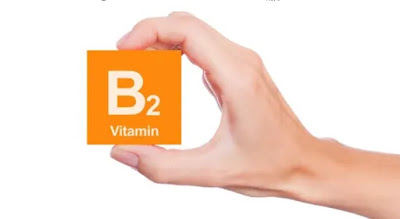Vitamin B2 (Riboflavin)
Vitamin B2, or riboflavin, is one of eight B vitamins that are essential for human health.
Vitamin B2 is a water-soluble vitamin, so it dissolves in water. All vitamins are either water soluble or fat soluble. Water-soluble vitamins are carried through the bloodstream, and whatever is not needed passes out of the body in urine.
People need to consume vitamin B2 every day, because the body can only store small amounts, and supplies go down rapidly.
Functions :
Vitamin B2 helps break down proteins, fats, and carbohydrates.
It plays a vital role in maintaining the body’s energy supply.
Riboflavin helps convert carbohydrates into adenosine triphosphate (ATP).
The human body produces ATP from food, and ATP produces energy as the body requires it.
The compound ATP is vital for storing energy in muscles.
Source :
- Meat, fish, and dairy products provide vitamin B2.
- Fish, meat, and poultry, such as turkey, chicken, beef, kidneys, and liver
- Eggs
- Dairy products
- Asparagus
- Mushrooms
- Nuts
- Parsley
- Pumpkins
- Sweet potatoes
- Cruciferous vegetables, such as broccoli, Brussels sprouts, spinach, dandelion greens, and watercress
- Whole-grain breads, enriched breads, and wheat bran
- Yeast extract
Daily requirements
RDA (recommended daily allowance) of vitamin B2 is
- Men aged 19 years and over -1.3 milligrams per day,
- Women - 1.1 milligram per day.
- During pregnancy - 1.4 milligrams per day
- breastfeeding - 1.6 milligrams per day.
Deficiency :
Riboflavin deficiency is also known as ariboflavinosis
Vitamin B2 deficiency is a significant risk when diet is poor, because the human body excretes the vitamin continuously, so it is not stored.
A person who has a B2 deficiency normally lacks other vitamins too.
There are two types of riboflavin deficiency:
- Primary riboflavin deficiency happens when the person’s diet is poor in vitamin B2.
- Secondary riboflavin deficiency happens for another reason, maybe because the intestines cannot absorb the vitamin properly, or the body cannot use it, or because it is being excreted too rapidly.
Signs and symptoms of deficiency
- A lack of vitamin B2 can lead to mouth ulcers and other complaints.
- Angular cheilitis, or cracks at the corners of the mouth
- Cracked lips
- Dry skin
- Inflammation of the lining of the mouth
- Inflammation of the tongue
- Sore throat
- Scrotal dermatitis
- Fluid in mucous membranes
- Iron-deficiency anemia
- Eyes may be sensitive to bright light, and they may be itchy, watery, or bloodshot

 Posted by
Posted by 



comment 0 Comments
more_vert